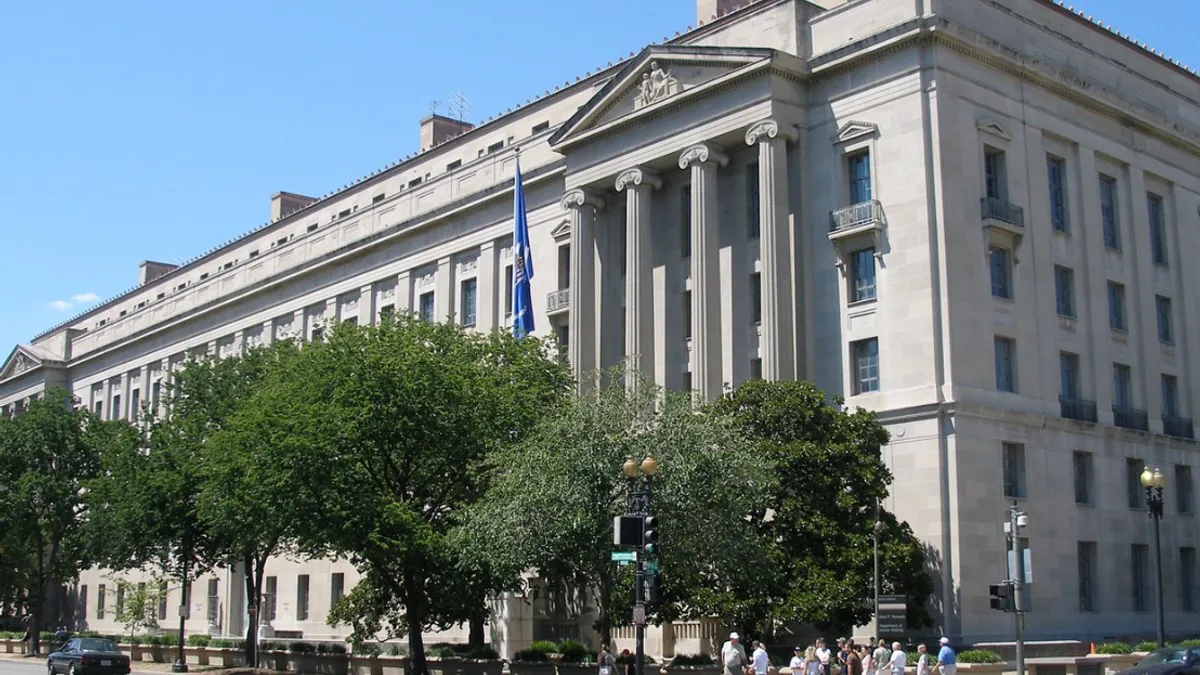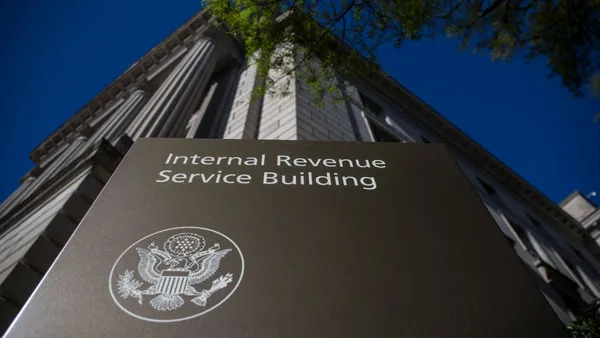Dive Brief:
-
The CFO of a Mississippi construction company pleaded guilty Tuesday to employment tax violations that resulted in an Internal Revenue Service loss of more than $6 million, the Department of Justice said.
-
Julian Russ of Houma, Louisiana, failed for several years to file required quarterly employment tax returns or pay taxes withheld from employees’ wages to the IRS, despite knowing of his obligation to do so, according to a DOJ press release.
-
Russ committed the violations from at least 2012 through October 2018 in his capacity as CFO of Community Construction Company, a pipeline-maintenance and construction company based in Hazelhurst, Mississippi, DOJ said. He faces a maximum penalty of five years in prison and a period of supervised release, restitution, and monetary penalties, it said.
Dive Insight:
Civil and criminal employment tax enforcement are among the highest priorities of DOJ’s Tax Division, according to a notice posted on the department’s website. Companies that willfully fail to pay taxes withheld from their employees’ wages are “stealing from their employees, and ultimately, the United States Treasury,” as well as gaining an unfair advantage over competitors, the notice says.
Generally, any officer of a business, including a CEO or CFO, may be held liable for tax crimes that occur under that person’s watch, according to California tax attorney David Klasing.
“Most of the time, the behavior will have to have been willful on the part of the CEO, like telling [a] subordinate to commit tax fraud or committing it themselves, for it to constitute a chargeable tax crime,” Klasing wrote in a July 2020 blog post. “However, there are times when the prosecution will be able to prove its case under a theory of ‘willful blindness.’”
The basic concept of willful blindness is that an individual intentionally avoided the facts rather than making a genuine mistake, he said.
Russ’ case was prosecuted by trial attorney Curtis Weidler of the Tax Division and Assistant U.S. Attorney Charles Kirkham for the Southern District of Mississippi.
He remains under scrutiny by the criminal investigation arm of the IRS, according to DOJ’s release.














